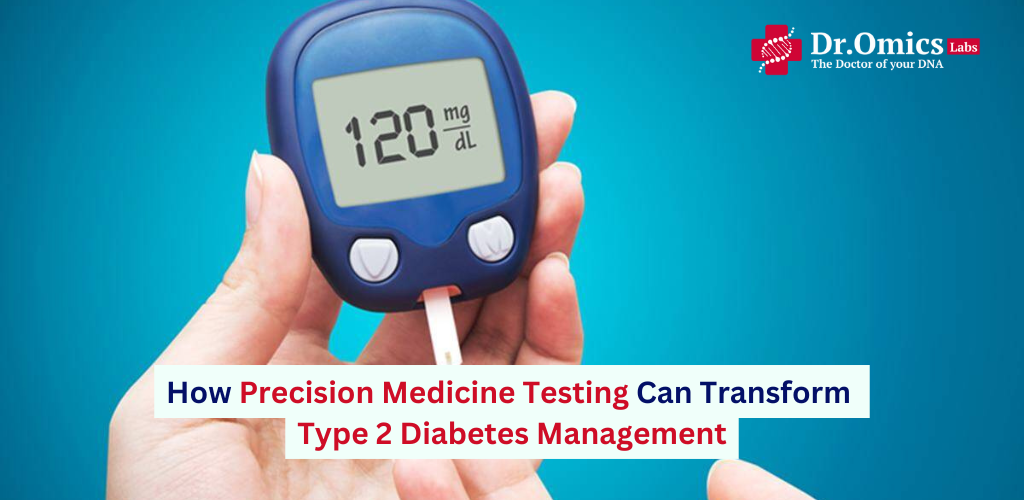Type 2 diabetes (T2D) has become one of the most significant global health challenges, affecting millions worldwide. While conventional treatments focus on generalized strategies, the variability in patient responses often leaves gaps in effective disease management. One of the key advantages of precision medicine in managing type 2 diabetes is its ability to identify genetic markers that influence how a patient responds to various treatments. For example, certain genetic variants may affect insulin sensitivity, medication metabolism, or the risk of developing complications such as cardiovascular disease or neuropathy. With this knowledge, healthcare providers can personalize treatment plans that are more likely to be effective for each individual, reducing the trial-and-error approach often seen with standard therapies. Additionally, by considering lifestyle factors such as diet, exercise, and stress management, precision medicine enables a holistic approach that addresses the root causes of diabetes, rather than just managing symptoms. Enter precision medicine for type 2 diabetes a transformative approach that tailors prevention, diagnosis, and treatment strategies based on individual genetic, environmental, and lifestyle factors. By integrating genetic testing for diabetes, precision medicine offers a promising pathway to improve outcomes, minimize complications, and enhance overall patient care.
Understanding the Role of Precision Medicine
Precision medicine applies advanced molecular tools to unravel the genetic and biochemical mechanisms underlying T2D. Unlike the traditional “one-size-fits-all” approach, this methodology focuses on the unique genetic makeup of each patient, identifying genes affected and providing actionable insights into disease progression, treatment response, and preventive strategies.
The Genetic Basis of Type 2 Diabetes
T2D is a multifactorial disease influenced by a combination of genetic and environmental factors. Over 400 genetic variants have been implicated in T2D risk, with many affecting pathways like insulin secretion, glucose metabolism, and fat storage. Key genes linked to T2D include:
- TCF7L2: Regulates insulin secretion and glucose homeostasis, with certain variants increasing diabetes risk.[1]
- PPARG: Involved in fat metabolism and adipogenesis, impacting insulin sensitivity.[2]
- KCNJ11: Plays a role in pancreatic beta-cell function and insulin release.[3]
- FTO: Associated with obesity, a major risk factor for T2D.[4]
- SLC30A8: Encodes a zinc transporter critical for insulin storage and secretion.[5]
While these genes provide a foundation for understanding T2D, the interplay between multiple genetic variants and environmental triggers makes precision medicine indispensable in addressing the disease’s complexity.
Benefits of Genetic Testing for Diabetes
By leveraging genetic testing for diabetes, clinicians can better identify at-risk individuals, customize interventions, and optimize treatment strategies.
Key Advantages of Genetic Testing
- Early Detection: Identifies individuals with a genetic predisposition to T2D, enabling preventive measures.
- Stratified Risk Assessment: Differentiates between patients with varying levels of disease susceptibility.
- Customized Pharmacotherapy: Guides drug selection based on genetic profiles, improving efficacy and reducing adverse effects.
- Targeted Lifestyle Recommendations: Tailors dietary and exercise plans to match individual metabolic profiles.
Advanced Applications of Precision Medicine
1. Epigenetics in Diabetes Management
Beyond genetic predispositions, epigenetic changes, such as DNA methylation and histone modifications, affect gene expression in T2D. Precision medicine explores these mechanisms to develop targeted therapies that modulate gene activity.
2. Integration with Digital Health
Wearable devices and continuous glucose monitors (CGMs) combined with genetic insights provide real-time, adaptive feedback, enhancing self-management for T2D patients.
3. Predictive Analytics
Machine learning algorithms analyze genetic, clinical, and lifestyle data to predict disease trajectories and recommend interventions.
4. Targeted Biologics
Precision medicine facilitates the development of biologics that target specific pathways, such as GLP-1 receptor agonists, tailored to genetic profiles for enhanced efficacy.
Precision Medicine: Shaping the Future of Diabetes Care
The incorporation of precision medicine into T2D management has profound implications for patient outcomes. Key benefits include:
- Enhanced Glycemic Control: By aligning treatments with genetic profiles, precision medicine improves blood sugar regulation.
- Reduced Complications: Early, targeted interventions mitigate risks of complications like neuropathy, retinopathy, and cardiovascular disease.
- Cost-Effectiveness: Personalized strategies minimize trial-and-error approaches, reducing overall healthcare costs.
- Empowered Patients: Tailored recommendations foster patient engagement and adherence to treatment plans.
Precision medicine for type 2 diabetes is not just a concept—it is a transformative approach reshaping how we understand and manage this complex disease. By integrating genetic testing for diabetes with advanced treatment modalities, precision medicine offers a future where T2D care is more effective, proactive, and patient-centered. At Dr. Omics, we are dedicated to harnessing the power of genomics to redefine diabetes management. Our innovative tools and solutions empower healthcare providers and patients alike, paving the way for personalized, evidence-based care that transforms lives. With precision medicine, the future of T2D management is as unique as your DNA.
Reference
- The Role of TCF7L2 in Type 2 Diabetes – PMC
- Cross-Talk between PPARγ and Insulin Signaling and Modulation of Insulin Sensitivity – PMC
- KCNJ11 activating mutations cause both transient and permanent neonatal diabetes mellitus in Cypriot patients – PubMed
- Role of FTO and MC4R Polymorphisms in Escalating Obesity and Their Indirect Association With Risk of T2D in Indian Population – PMC
- The diabetes-susceptible gene SLC30A8/ZnT8 regulates hepatic insulin clearance – PMC




